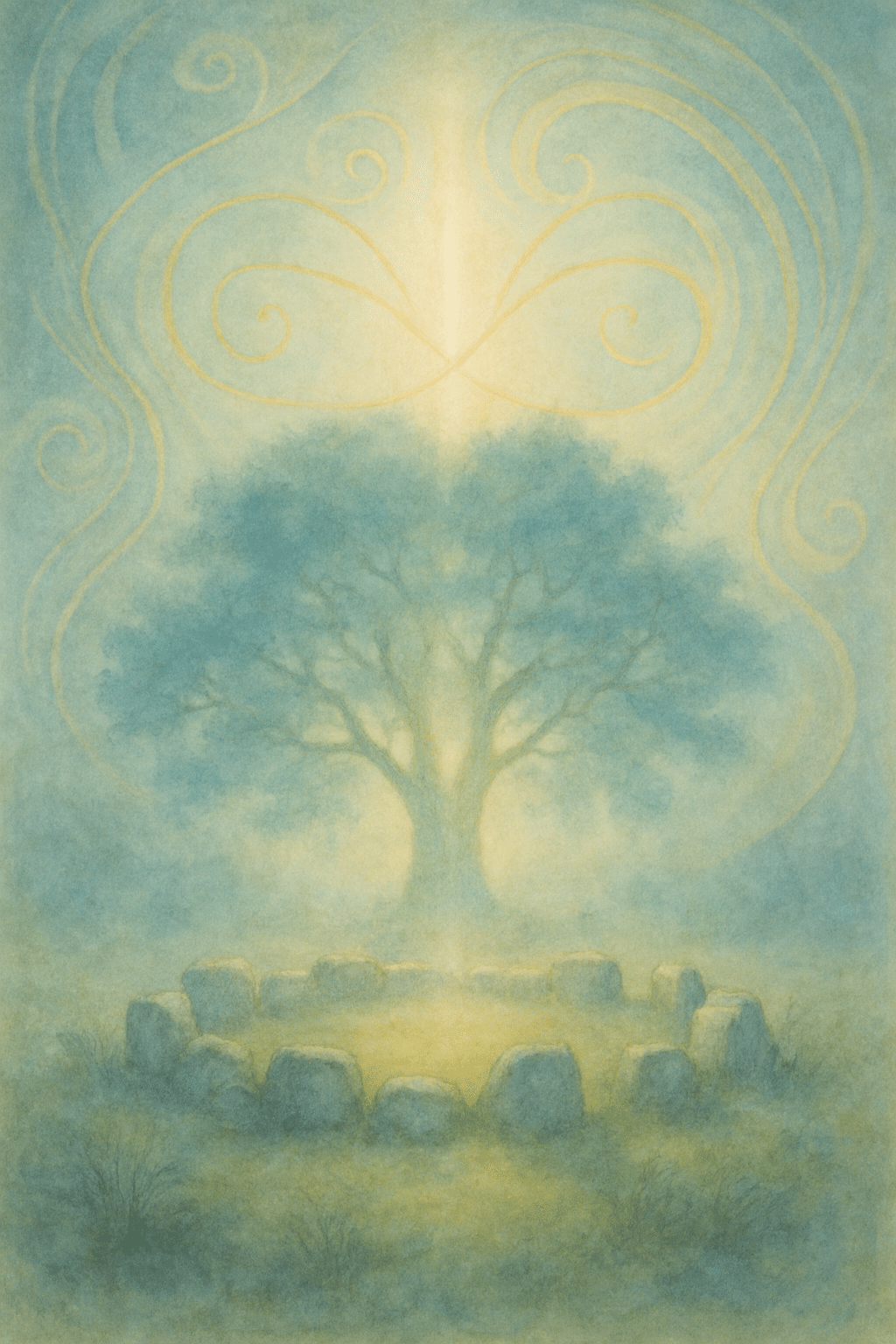“Sometimes everything must fall apart so that rest can find you.”
We spend our lives building ourselves – through roles, routines and the identities that we think matter. We become a partner, a parent, have a career, a calendar. We hold fast to titles and to-do lists, believing we are steering the ship through calm seas, even as the tide subtly shifts beneath us.
And then – one day – the unthinkable happens.
A relationship changes. Someone leaves our life. A role dissolves. The map we’ve been following suddenly makes no sense at all. Our world tilts (sometimes quietly, sometimes violently) and we’re left with the rubble of who we thought we were.
In the aftermath, there’s panic. Confusion. Grief. Maybe rage. But often, nestled quietly beneath all that noise, something else arrives: Absence. Silence. Stillness.
And in that stillness – unexpectedly – rest.
This kind of rest doesn’t come because you’ve earned it or invited it in. It doesn’t come neatly wrapped in a day off or a holiday. It’s not comfortable and it’s certainly not planned. It arrives uninvited, like a tide that pulls you to shore after a storm. You don’t swim to it – it finds you and it can be painful and uncomfortable, but often necessary.
This is the rest that ruin reveals. A rest that doesn’t fix or soothe. It listens. Watches. Waits.
When the ground gave way
There was a time in my life when everything I thought I could rely on simply gave way. A role I had poured myself into disappeared almost overnight, and with it, the identity I had wrapped so tightly around it that was safe, comfortable and sure. I had confidently built a life around being something for someone else – and when that structure crumbled, I couldn’t find me.
For a time, there was only fog. And pain. And aching. And space.
But in that rawness, something else eventually came: a profound stillness. I couldn’t force it. I couldn’t fill it. I could only sit inside it and rest, fragile and open. And slowly, that rest began to show me truths I had never dared to see.
Other voices from the ruin.
I’m not alone in this.
One woman told me, “It wasn’t the end of the marriage that broke me – it was realising that I hadn’t really seen myself in years. I had to grieve not just the relationship, but the version of me I’d abandoned.”
Another said, “When I lost my job, I thought I’d lost my worth. But it was only in that space that I started painting again. I’d forgotten I even loved it.”
And someone quietly shared, “The hardest thing about collapse is that no one can do it for you. But once you let it happen, rest rises like warm water. You float, eventually.”
Their stories differ, but the pattern is the same: something falls and something real emerges.
Who are you without the doing?
Close your eyes. Breathe in slowly and breathe out. Let everything go.
Now ask yourself: If everything was stripped away – your roles, your habits, your busyness – who would remain?
It’s a haunting question, isn’t it? But in the ruin, this question isn’t just haunting, it’s liberating.
Because the rest that finds us there isn’t empty. It’s fertile. It waits for something deeper to emerge. A version of you that was always there – beneath the many roles, beneath the noise.
Nature knows this pattern well
After a wildfire, a forest looks dead. Ash covers everything. The trees are black and skeletal. The silence feels total.
But in that silence, seeds stir. Deep in the earth, certain plants only germinate after fire. The heat cracks them open.
Rest after ruin works the same way. It isn’t glamorous. It’s not something we would invite in. It doesn’t ask you to rush. But it prepares the ground for something wiser. Something real.
Dartmoor: A fire that frees the land
When I lived on the farm on Dartmoor, I witnessed something that stays with me.
Each year, the local farmers would come together to swale the moor – setting fire to the thick gorse that blanketed the land. At first, I found it violent. The flames seemed angry, the smoke heavy. Gorse, though native, is hardy and can grow dense and dominant. Left unchecked, it overwhelms other species; casting shade, limiting diversity and smothering gentler growth beneath its thorny sprawl.
That first year, watching the hills burn, I felt uneasy. It seemed wrong to scorch the land so deliberately.
But the following spring, I saw something different.
Shoots of heather. Tiny wildflowers. Native grasses. Life I hadn’t seen before – life that couldn’t emerge while the gorse smothered and held everything captive.
The fire hadn’t destroyed the moor. It had freed it.
And so it is with our lives. Sometimes, the fire feels cruel. But beneath the burning, something older, quieter and more authentic waits. Dormant, yes – but ready. The cleansing is painful, yes – but essential.
When everything familiar burns away, space is made for what was waiting all along: your wildflowers. Your native roots. The truest parts of you, finally able to grow.
Signs That Rest Has Found You
- You feel still, even though the pieces haven’t come back together.
- You ask quieter questions: Who am I, really? What do I need now?
- You hesitate – not from fear, but from your respect for the next step.
- You begin to accept what cannot be fixed.
- You stop performing. You simply breathe.
Why This Rest Matters
The world pushes us to rebuild fast. Patch it up. Paint over the cracks. Move on.
But true rest doesn’t rush. True rest walks through the ruins and sits down. It doesn’t rebuild for the sake of appearance – it waits until the soul is ready to rise, gently, honestly, as something truer.
This isn’t about wallowing. It’s about allowing.
Allowing the silence. The grief. The questions. The pause. Allow yourself to feel and accept it and trust that, like the earth after fire, you will bloom again.
Gentle practices to invite this rest
- Sit in a space that feels empty – your garden, your bedroom, with your breath.
- Touch the ground. Feel your body’s weight supported by earth or chair or floor.
- Light a candle with no intention but presence.
- Whisper to yourself: “I’m still here. That’s enough, I am enough.”
- Let rest arrive in its own time. Welcome it like rain in a parched land.
Story: The Woman Amid the Ruin
There was once a woman whose life fell apart – not by fire or storm, but by a quiet unravelling of everything she had trusted.
In the beginning, she wandered through the ruin, clutching old maps, searching for her name for the paths she knew. She had forgotten who she was without the roles she once wore.
She tried to rebuild quickly. Others told her to be strong, to move on. But nothing she placed would stay upright. So eventually, she stopped.
Then one morning, she sat down in the dust beside a single brick. It wasn’t special. But it was real. She touched it and felt its cool weight.
There, she rested.
She didn’t make plans. She didn’t speak. She just breathed. Each day, she returned – not to build, but to be. The silence deepened. Her breath grew slower. Her heartbeat quieter.
Then, one day, she lifted another brick. Not to rebuild the old house. But to begin a new circle – a hearth. A space just for her.
She created a courtyard, not grand but very sacred. A place to sit, to breathe, to remember:
I exist. I belong. I am whole. I am enough – even now

